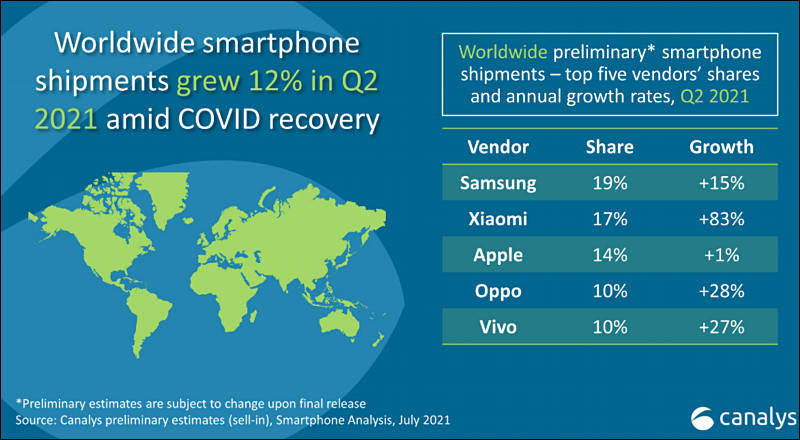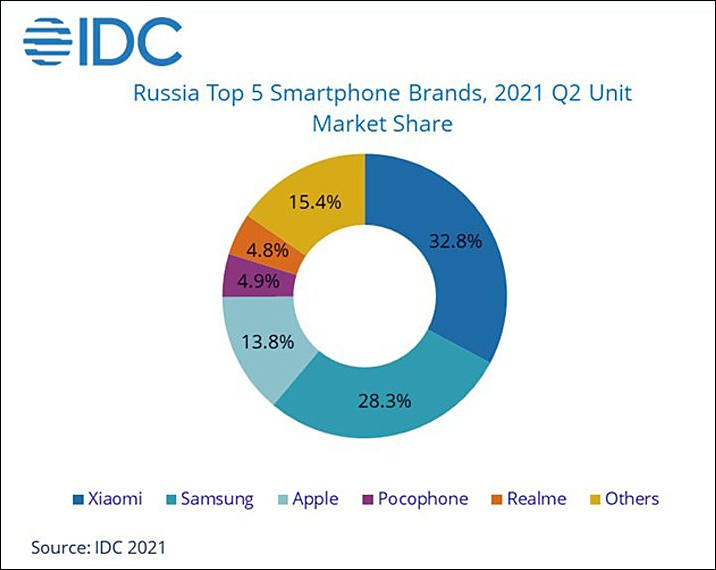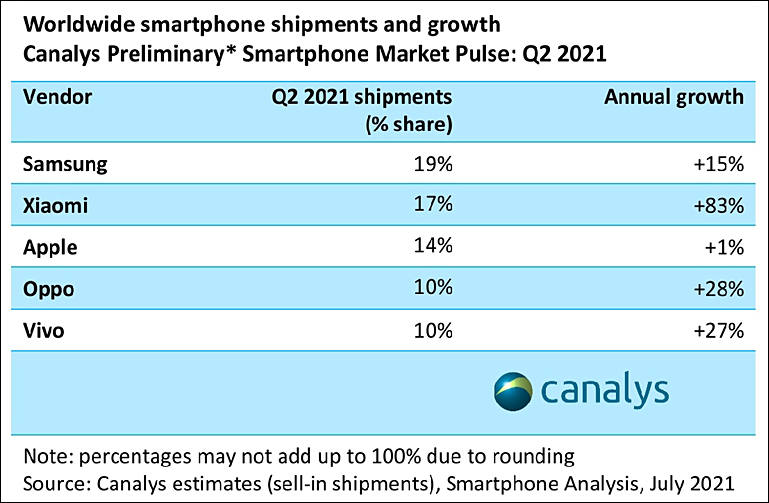
It allows to keep PV going, with more focus towards AI, but keeping be one of the few truly independent places.
-
In the period from January to March inclusive, Xiaomi received 76.88 billion yuan (approximately $ 12 billion) in revenue. This is an impressive 55% more than in the first quarter of last year.
Gross profit was about 14.16 billion yuan ($ 2.2 billion), up 87.4% from a year ago. Adjusted net income jumped 163.8% at all, reaching 6 billion yuan ($ 0.94 billion).
“During the first quarter of 2021, both our total revenues and adjusted net income reached record highs for the quarter, demonstrating the robustness of the business model and the clear implementation of the company's strategies. The meteoric rise in smartphone shipments has led to a continuous expansion of the company's user base. Our AIoT platform continues to scale around the world, ”the company notes.
-
Xiaomi is now the second largest smartphone vendor based on worldwide shipments in the second quarter of 2021, according to a new report from Canalys. The Chinese company captured 17 percent of global market share, according to the research firm, just behind Samsung’s 19 percent but ahead of Apple’s 14 percent.
-
According to Canalys' latest research report, Chinese handset maker Xiaomi became the number-one smartphone brand in Thailand with a 21% market share in the second quarter this year, surpassing Samsung for the first time. Samsung fell to third place with a 19% market share.
According to Bangkok Post, Xiaomi's smartphone shipments in the second quarter increased 200% on year. Xiaomi Thailand's country manager Jonathan Kang said Xiaomi has been investing consistently in high-end technology and innovations, which has attracted customers.
-
Xiaomi is killing off the Mi branding for its smartphones. Future flagships will just be known as Xiaomi phones (this actually already started with the recent Xiaomi Mix 4). But the Redmi and Poco brands remain for budget & mid-range devices.
-
Xiaomi has set up its electric vehicle (EV) business and completed company registration in China on September 1 with a registered capital of CNY10 billion (US$1.55 billion).
The registration came shortly after Xiaomi's announcement to acquire the self-driving technology developer DeepMotion. Xiaomi first revealed its plans to make EVs at the end of this March.
-
According to an industry report, Chinese tech giant Xiaomi Corp. overtook Apple Inc. and became the world's largest supplier of wearable bracelets in the second quarter of 2021. Xiaomi took the leading position with shipments of 8 million units during this period, taking almost 20 percent of the market share, data from technology market research firm Canalys showed.
-
According to Counterpoint Technology Market Research estimates, 323.1 million smart cellular devices were sold globally in the second quarter of this year, which is 17% more than in the same period of 2020. The leader is the South Korean giant Samsung, which controls about 18% of the industry. Xiaomi was able to move up to second place, ahead of Apple: their shares were 16% and 15%, respectively.
It is noted that in the period from April to June inclusive, Xiaomi sold more than 52 million smartphones. For the first time, according to the results of the quarter, this company took the second place in the ranking of the leading players in the world market.
According to the co-founder and CEO of Xiaomi Lei Jun, Xiaomi intends to become the leader in the smartphone market. Moreover, the company is going not only to take the first place, but also to keep it for a long time.
-
Vice President of Xiaomi Lu Weibing said that Xiaomi plans to bypass Samsung and Apple in the smartphone market and take the top spot within three years.
-
Electronics and home appliance maker Xiaomi announced that in the first quarter of 2022, revenue decreased by 4.6% to 73.4 billion yuan ($10.9 billion). This was facilitated by severe restrictions imposed by the Chinese authorities to combat the spread of coronavirus infection, as well as a global shortage of components.
Xiaomi's net loss for the first three months of 2022 was 587.6 million yuan (about $80 million), while a year earlier for the same period a profit of 7.8 billion yuan ($1.16 billion) was made. Against this backdrop, the largest Chinese smartphone maker continues to lose global market share, due to which main competitors such as Samsung and Apple continue to increase sales.
Howdy, Stranger!
It looks like you're new here. If you want to get involved, click one of these buttons!
Categories
- Topics List23,993
- Blog5,725
- General and News1,354
- Hacks and Patches1,153
- ↳ Top Settings33
- ↳ Beginners256
- ↳ Archives402
- ↳ Hacks News and Development56
- Cameras2,368
- ↳ Panasonic995
- ↳ Canon118
- ↳ Sony156
- ↳ Nikon96
- ↳ Pentax and Samsung70
- ↳ Olympus and Fujifilm102
- ↳ Compacts and Camcorders300
- ↳ Smartphones for video97
- ↳ Pro Video Cameras191
- ↳ BlackMagic and other raw cameras116
- Skill1,960
- ↳ Business and distribution66
- ↳ Preparation, scripts and legal38
- ↳ Art149
- ↳ Import, Convert, Exporting291
- ↳ Editors191
- ↳ Effects and stunts115
- ↳ Color grading197
- ↳ Sound and Music280
- ↳ Lighting96
- ↳ Software and storage tips266
- Gear5,420
- ↳ Filters, Adapters, Matte boxes344
- ↳ Lenses1,582
- ↳ Follow focus and gears93
- ↳ Sound499
- ↳ Lighting gear314
- ↳ Camera movement230
- ↳ Gimbals and copters302
- ↳ Rigs and related stuff273
- ↳ Power solutions83
- ↳ Monitors and viewfinders340
- ↳ Tripods and fluid heads139
- ↳ Storage286
- ↳ Computers and studio gear560
- ↳ VR and 3D248
- Showcase1,859
- Marketplace2,834
- Offtopic1,320










